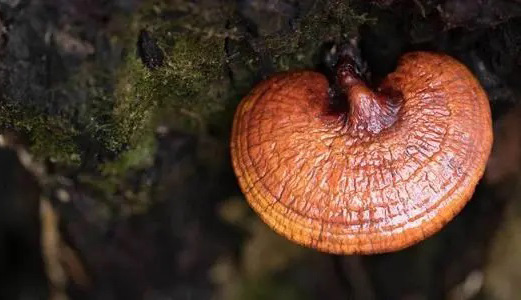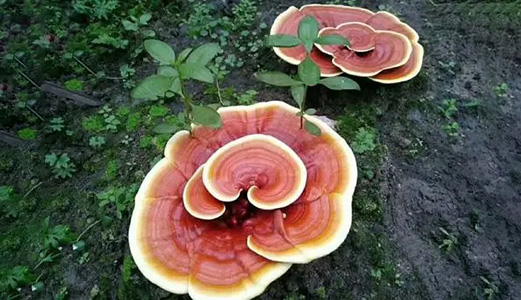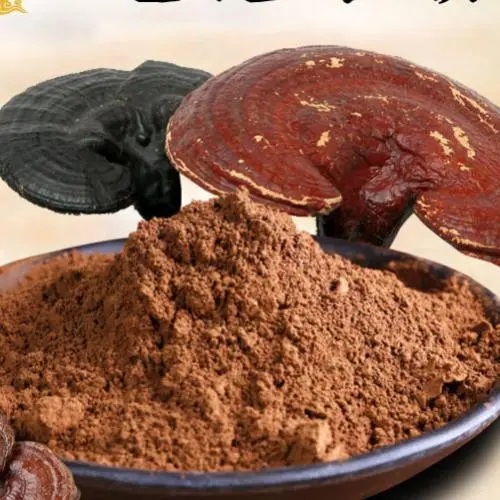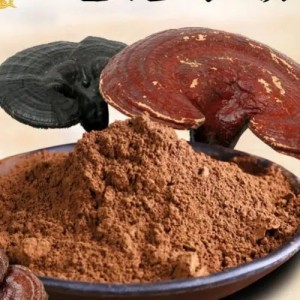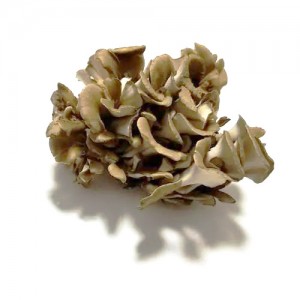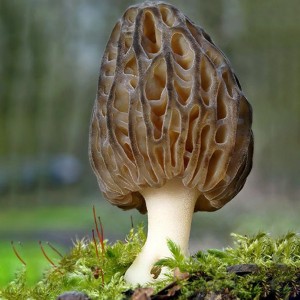Chinese Ganoderma lucidum, Lingzhi
Lingzhi, Ganoderma lingzhi, also known as reishi, is a polypore fungus belonging to the genus Ganoderma.
Its red-varnished, kidney-shaped cap and peripherally inserted stem gives it a distinct fan-like appearance. When fresh, the lingzhi is soft, cork-like, and flat. It lacks gills on its underside, and instead releases its spores via fine pores. Depending on the age, the pores on its underside may be white or brown.
In nature, it grows at the base and stumps of deciduous trees, especially that of the maple. Only two or three out of 10,000 such aged trees will have lingzhi growth, and therefore its wild form is rare. Lingzhi may be cultivated on hardwood logs, sawdust or woodchips.
The lingzhi mushroom is used in traditional Chinese medicine, and is famous for its unique beneficial to human body. The germanium conterned in Lingzhi mushroom can increase the ability of human blood absorption oxygen, so it can promote metabolism and delay the role of aging, and enhance the efficacy of skin itself, which can be used for the recovery of various chronic diseases. Besides, the organic germanium can also induce the body to produce and activated NK cells and macrophage activity,which are involved in immune regulation.
To get the beneficials, the most common way is to make soup with lingzhi, the Nutrient ingredient would be released to the soup so that human body could absorb them. The soups could be made by lingzhi and meat, other mushrooms etc. Another way to use lingzhi is to extract the spores, which is believed to be the most effective way for absorbing the benificial ingredients from Lingzhi. Actually the extracted spore powder is more and more popular as a healthy funtional dietary supplement, which is bringing much opportunities and prosperity to the growers of this rare exotic mushroom.
Detail image
